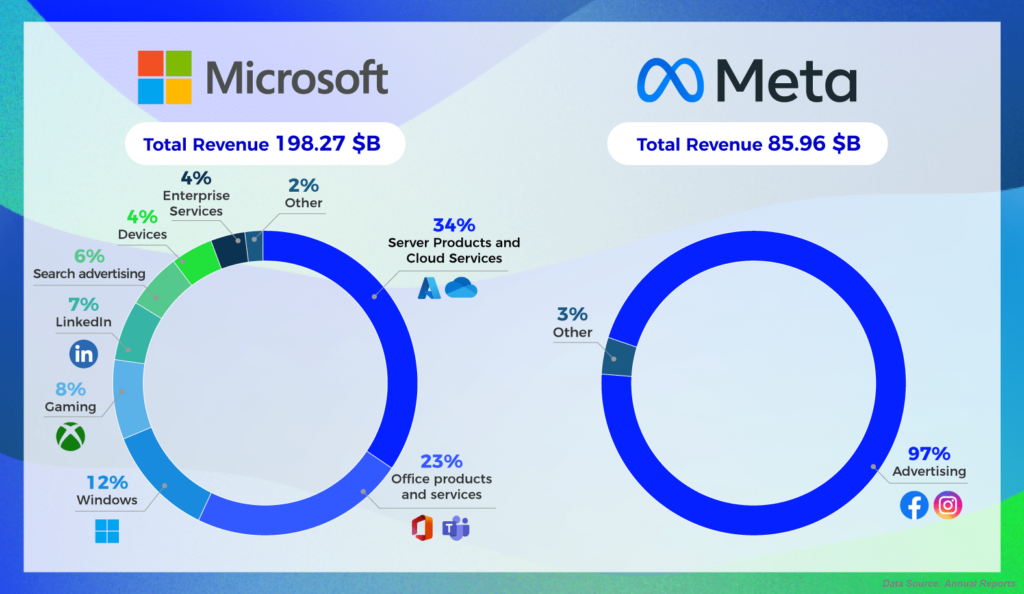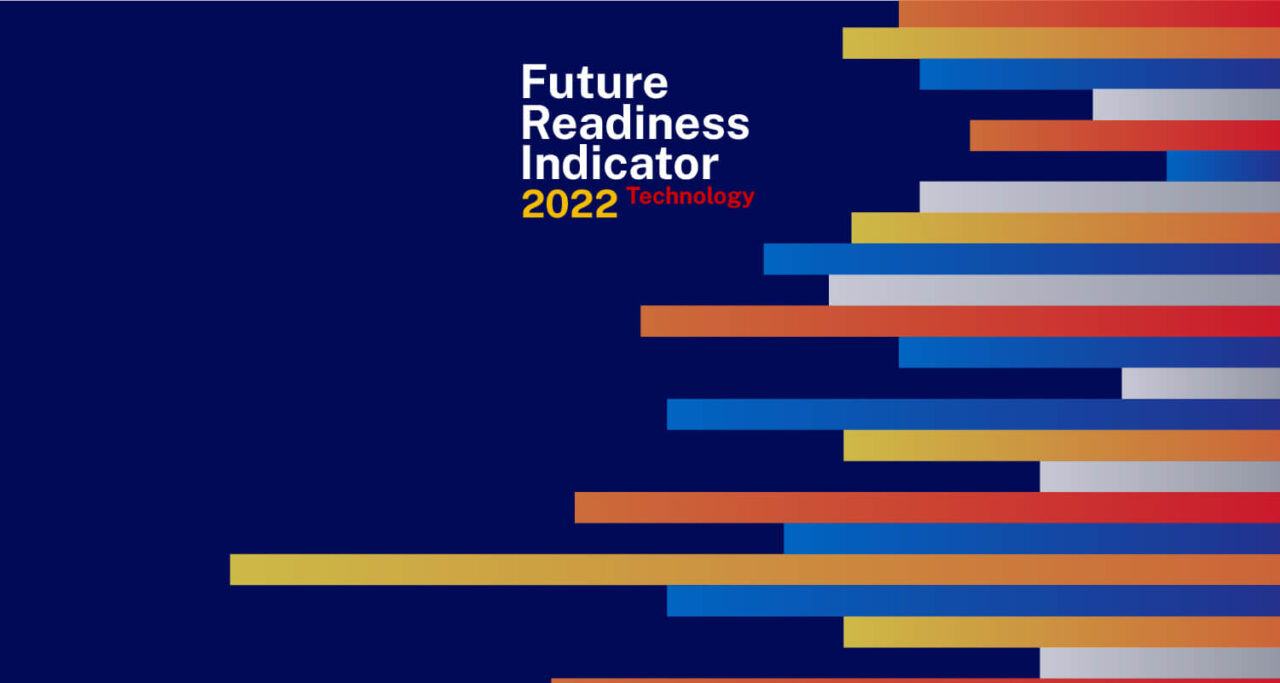IMD business school for management and leadership courses



Future Readiness Indicator
During The Tech Meltdown, Who Is The Most Future-Ready?
The two tech giants standing neck to neck are Alphabet and Microsoft. Alphabet’s cash machine—that is, the Google search engine—is now de facto the barometer of the entire advertising industry. Its dominance has increased further with the weakening of Facebook. There are many causes of Facebook’s fall, and chief among them is the shift in Apple’s iOS privacy policy.
Unlike Google, Facebook never established a direct relation with its users at the level of their phones’ operating systems. Instagram, Facebook, and WhatsApp all sit on top of Apple’s iOS or Google’s Android. Without that final, closed loop, Mark Zuckerberg depends on others to gather data to build user profiles, which his company then sells to advertisers to run ads. That’s how many brands can target you online.
But Apple changed its policy and iPhone settings last year due to public outcry about data privacy. Overnight, Facebook could no longer follow you over other sites outside of its own app.
With less data access, Facebook cannot target its audience as effectively as it used to. But this doesn’t only hurt Meta. It hurts Snapchat, Instagram, TikTok, and the like. Google is an exception, because it operates Android. And you are probably using Google Maps, Gmail, and YouTube. Your default search engine is likely to be Google Search as well. That’s how Alphabet is consolidating the advertising industry when others are splintering. Only Alphabet has enough essential product offerings to counterbalance Apple’s move.

Trending closely behind is Microsoft. Amongst other tech firms, Microsoft has had some of the best stock performance this year— only decreasing 22%. The main reason for their stability is due to their continuous revenue growth from both cloud strength and corporate software. Its strength also lies in the diversification of its businesses—from Word and Excel to Teams and SharePoint, and from Azure cloud computing to HoloLens in augmented reality to Xbox for video gamers. This is a tech giant that looks ubiquitous and mostly benevolent. It doesn’t have the scandalous data leaks that companies like Facebook have had. Nor does it have small businesses complaining about its anticompetitive behaviors like Amazon does. Microsoft simply works like a good old utility company, running an information highway for all. The company may not have the glamor of Apple, but almost everyone is a Microsoft customer one way or another.
While other big tech companies, including Google and Meta, are effectively barred from China, Microsoft has more than 9,000 full-time employees in the country. Eighty percent of them are R&D specialists and engineering technicians. The company singlehandedly defies the whole decoupling narrative put forth by Washington and Beijing.
So, what’s the lesson learned from tech? Never pursue easy growth. Pursue quality growth to diversify your product and market. No one can afford to put all their eggs in one basket as we head into 2023.












